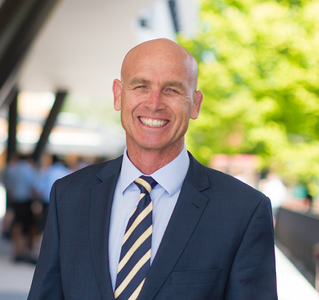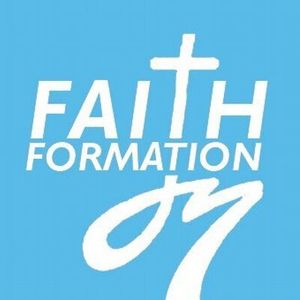From the Headmaster
Jesus is Present in Our Interruptions
Last weekend we celebrated the Feast of the Ascension. In the account of the Acts of the Apostles, an angel appears and tells the group that Jesus will return. I remember as a child thinking the second coming would be a kind of apocalypse with Jesus returning to save a broken world. This is not the way Jesus likes to get things done. Instead, it is easier to catch sight of him in our daily lives: he is present amongst us in the beauty of every day. German theologian J.B. Metz once wrote that the best short definition of Jesus is ‘interruptions’. In other words, Jesus comes to us in various surprising moments during the day. They are moments of grace. It might be a chance encounter with someone, an unexpected compliment or words that pull us up short, make us want to think and question, words that we want to carry around in our hearts and minds for a time.
Recently I was struck by a colleague’s recollection of a school principal saying ‘we are what we walk by’. I immediately thought of Luke’s Gospel story of the Good Samaritan and remembered with the same edge that it was the so-called ‘respectable’ people, the priest, the teacher, who walked by the man beaten and robbed. How often we define ourselves by the responsibility we evade, ignore and postpone! Jesus is present in our interruptions!
Reconciliation Day
On 27 May 1967, Australians finally voted to recognise Aboriginal people in the census of the Australian population. Up until then, Aboriginal people had the right to die for Australia in war, as numbers of them had, but not to be counted among the citizens of the country they died for. The change, rightfully, was approved by 91% of the population. National Reconciliation Week is now recognised from 27 May – 3 June each year.
This year the dialogue around reconciliation has the added attention of the proposed referendum on the Indigenous Voice to Parliament. Our recent Australian Plenary Council endorsed the Uluru Statement from the Heart and encouraged ‘engagement with processes for implementing the statement, including local, regional and nation truth-telling efforts’. We are all invited into constructive dialogue and must strive to listen to Indigenous leaders who know what is good for their communities.
Whatever the politics of this referendum, we all need to take to heart Noel Pearson’s chilling observation about his people: ‘We are a much unloved people. We are perhaps the ethnic group Australians feel least connected to. We are not popular and we are not personally known to many Australians. Few have met us and a small minority count us as friends…and despite never having met any of us and knowing very little about us…Australians hold and express strong views about us, the great proportion of which is negative and unfriendly. It has ever been thus. Worse in the past but still true today.”
I encourage all of us, particularly during this coming National Reconciliation Week, to explore how we can be part of achieving a more just, equitable and reconciled country.
Matthew Hutchison
Headmaster






















